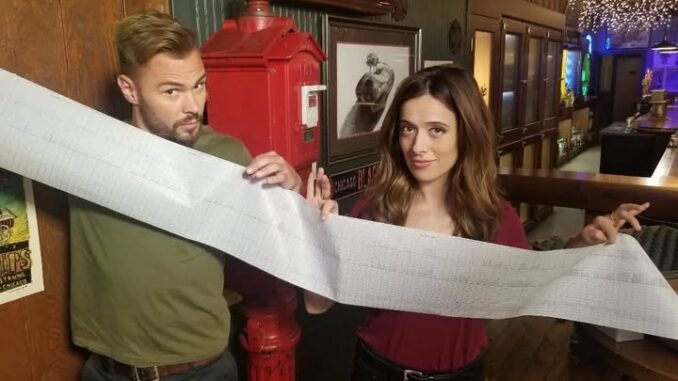
Chicago P.D. enters its twelfth season, fans have seen their favorite officers endure immense trauma, growth, and transformation. But amid the gritty cases and intense action, there’s one emotional thread that continues to sting both fans and cast alike—particularly for Marina Squerciati, who portrays Officer Kim Burgess. In a recent interview, Squerciati opened up about a moment in the show’s history that she still hasn’t fully made peace with—a moment she hopes will finally be addressed in future seasons.
Kim Burgess has been a core part of Chicago P.D. since Season 1, and over the years, she’s experienced enough trauma to fill several lifetimes. From being shot and left for dead to enduring a miscarriage, losing colleagues, and facing endless challenges in the field, Burgess has proven herself to be one of the series’ most resilient characters. Yet, there’s one major life change that hasn’t received the attention it deserves: her journey into motherhood.
After adopting Makayla, a young girl who lost her family to violence, Burgess stepped into a role far more emotionally complex than anything she’s faced on the job. Fans were moved by her commitment to becoming a mother and how she fought for custody. But as the show moved forward, that huge shift in her life often took a backseat to the usual action-driven narratives.
In a recent conversation with a fan outlet, Marina Squerciati didn’t hold back when asked what she hoped the show would rectify in the coming seasons. “I wish they’d spend more time showing Burgess as a mom,” she said. “There are glimpses, but not enough. She adopted a child—this is huge—and sometimes it feels like the show just forgets.”

She went on to explain how important that development was, both for her character and for the viewers who related to Burgess’s emotional evolution. “I worked really hard to show her maternal instincts, her trauma, her fierce protectiveness of Makayla. But then… it kind of faded into the background. That made me sad.” It’s not just about screen time, Squerciati emphasized—it’s about honoring the gravity of that life choice. “Becoming a parent, especially through adoption, is such a powerful arc. I hope future seasons can circle back and give it the depth it deserves.”
One of the things that makes Chicago P.D. unique within the One Chicago universe is its commitment to emotional realism. Unlike traditional procedurals that often reset character arcs each episode, P.D. allows trauma to linger, relationships to evolve, and consequences to shape futures. That’s why Burgess’s journey into motherhood matters so much—it was one of the show’s most emotionally authentic storylines.
When Makayla was kidnapped in Season 9, fans were gripped by Burgess’s frantic, heart-wrenching performance. The stakes were personal, not professional, and the show delivered a raw, emotional arc that proved just how high the cost of love and duty could be. But after that crisis passed, Makayla—and Burgess’s life as a parent—became more of a footnote than a narrative driver.
Burgess’s journey is about more than just her character—it reflects broader issues of how motherhood, adoption, and female resilience are portrayed on screen. In an industry still dominated by male-led action dramas, seeing a woman handle both high-pressure field work and the emotional labor of parenting is a powerful image. It’s not about making Burgess “softer”—it’s about showing the full spectrum of her strength. Marina Squerciati has never shied away from that complexity, and her desire to see it explored further is echoed by thousands of fans who want more than just shootouts and arrests.
With the new season underway, it’s not too late for Chicago P.D. to course-correct. Burgess remains a fan favorite, and her layered history offers ample room for more meaningful storytelling. Whether it’s a heart-to-heart with Makayla, a tense moment where motherhood and duty collide, or a quiet dinner scene that reveals how far they’ve come—there’s plenty left to explore. Squerciati’s words were not a critique of the show she’s given over a decade to—they were a heartfelt plea for depth, continuity, and character respect.
